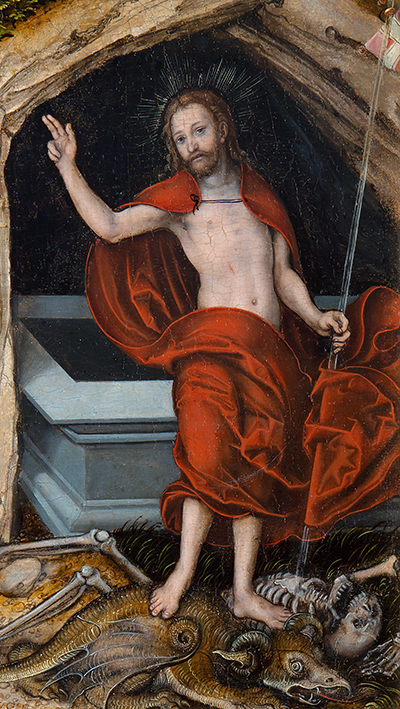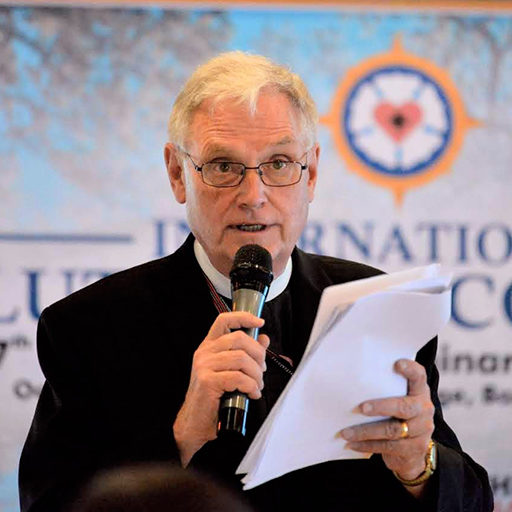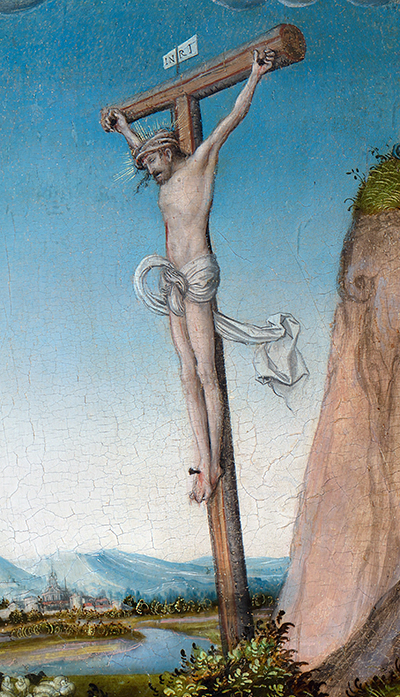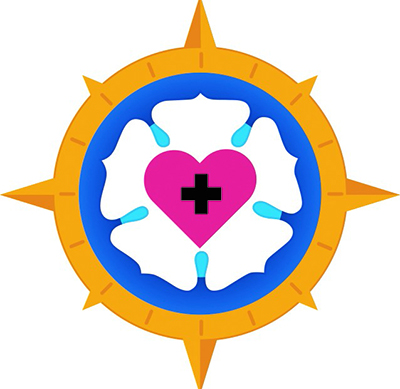by Timothy C.J. Quill
On February 24—the day the Russian military attacked Ukraine—I was enjoying a delightful glass of beer with a small group of German “conversationalists” at a stimulating Stammtisch at the Old Latin School in Wittenberg, Germany.[i] The conversation flowed spontaneously from one topic to another: art, classical and pop music, American movies, and international politics. Then, out of nowhere, the German artist asked: “You are a Christian pastor and professor, so what side of the Russian Ukrainian conflict is God on?” The question came from one of two regulars at the Stammtisch who also happen to be atheists. And so, the discussion was off and running in which the real issue proved to be the existence and nature of God and religion.
Over the next twenty-four hours, alarming details began to emerge revealing that the assault was indeed a major, comprehensive invasion by more than 150,000 Russian air, land, and naval forces on Ukraine from the north, east, and south. It was bad. People huddled in basements. Thousands of refugees were fleeing to the Polish and Rumanian boarders. Among the masses were members of several small Lutheran Church bodies—the remnants of what was once a large Lutheran Church before its destruction by the Communists.

So, what is the position and response of the International Lutheran Council, its 60-member church bodies and seven million members in regards to the Russian invasion? Rather than begin by wading into the swamp of international relations, politics, economics, and sanctions, or by considering questions like “Which side is God on?” and “Why does God allows evil?”, I will begin in another place. The right place to start is always with the God of grace and His Son, Jesus Christ, who was sent by His heavenly Father to do battle against sin, evil, suffering, death, and the devil.
Today is Ash Wednesday, the beginning of Lent. Lent is not a time for power plays by the mighty and powerful with their military weapons and political sanctions. Lent is a time of “self-sanctioning”—that is to say, Lent is a time of self-denial, fasting, and repentance for our sins: for the sinful conflicts we have caused in our lives and the lives of our loved ones, families, friends, church, and community.
Lent is not a time for power plays by the mighty and powerful with their military weapons and political sanctions. Lent is a time of “self-sanctioning”—that is to say, Lent is a time of self-denial, fasting, and repentance for our sins: for the sinful conflicts we have caused in our lives and the lives of our loved ones, families, friends, church, and community.
These are solemn days in Ukraine, Russia, and other European countries. The fear is palpable. How long will this conflict last? A week? A month? A year? Years? Lent is also a solemn time. It lasts forty days from Ash Wednesday to Good Friday. It is a time of solemn, serious repentance in which we take an honest account of the state of our sinful hearts, desires, and actions. And yet, amid this darkness in our hearts and in this fallen world, Lent does not extinguish but brightens the light of God’s love and grace. Lent is about our heavenly Father sending his only begotten Son to carry our sin within Himself on the cross. Ash Wednesday and Lent is a time of both repentance and absolution. Not just penance. Not just forgiveness. There is no season of Lent without both repentance and forgiveness. During Lent, we prepare our hearts to receive the crucified and risen Lord. To receive Jesus is to receive the forgiveness of sins, and where there is the forgiveness of sins, there is life—real, eternal life!
During these unimaginable dark and horrible days in Ukraine, the light of Christ must and will again shine and bring life and joy and peace. Look at the ravaged, dead body of the pure and holy Lamb of God on the cross. What do you see? You see Ukraine. You see the suffering and death of all those engaged in the battle, those on both sides and their families in Ukraine and in Russia. Isaiah depicts a heart-wrenching picture of what Jesus carried within himself on the cross: “Surely he has borne our griefs and carried our sorrows… He was wounded for our transgressions… upon Him was that chastisement that brought us peace, and with His stripes we are healed” (Isaiah 53:4-5).
Black ashes on our forehead are a sign of penitence and a reminder of death. When the ashes are imposed on our foreheads on Ash Wednesday, the pastor says, “Remember that you are dust and to dust you shall return.” Even if we escape the bullets and bombs of war, we will all most certainly die one day, and we therefore need the forgiveness of sins from Jesus.
After black come white. The blackness of sin, guilt, regret, despair, and the utter darkness of hell is replaced by the white of Easter Sunday and the resurrection. In Holy Baptism, we are covered with the white robe of Christ’s righteousness and purity.
Whose side is God on? The battle between the armies of Ukraine and Russia is real, brutal, and tragic. Soldiers and non-combatants, young and old will suffer and die in this heart-breaking travesty. And yet what we are seeing in Ukraine is only the tip of the iceberg—a horrific, destructive, painful tip of the iceberg, yet only the tip. The Apostle Paul describes the rest of the deadly iceberg in Ephesians 6:12ff: “For we do not wrestle against flesh and blood, but against the rulers, against the authorities, against the cosmic powers over this present age, against the spiritual forces of evil in the heavenly places.” This war is far worse and has eternal consequences. But the battle has been won by Christ.
It is significant that the war in Ukraine is being fought during the season of Lent. This sends a powerful message from God to all of us—Russians, Ukrainians, Europeans, Americans, and all nations—that it is a time for us to repent. The Lord declares that now is the time “to return to Him with all our hearts, with fasting, with weeping, and with mourning; a time to rend our hearts and not our garments. A time to blow a trumpet in Zion.” Not a war trumpet but to “consecrate a fast, a solemn assembly” (Joel 2:12-19). Ash Wednesday is a solemn assembly, and it is more than a brief one-day event. It marks the beginning of a season of forty days of special devotion, self-denial, and humble repentance born of a faithful heart that dwells confidently on the holy suffering and death of our Lord Jesus Christ and from Him draws life and hope. Lent likewise is more than just forty days. Rather, the forty days of penitence shape every day of life as one lives in repentance and forgiveness, hope, and joy. This is how the Small Catechism instructs all who have been baptized to live each day:
What does such baptizing with water indicate? It indicates that the Old Adam in us should by daily contrition and repentance be drowned and die with all sins and evil desires, and that a new man should daily emerge and arise to live before God in righteousness and purity forever.
The ILC is preparing to assist refugees and others in need once the chaotic events make it possible to undertake concrete acts of mercy for those devastated by the conflict.
Since the day Russia attacked Ukraine, the International Lutheran Council (ILC) has included a Litany for Ukraine on its homepage and encouraged churches and individuals to pray. The ILC is also preparing to assist refugees and others in need once the chaotic events make it possible to undertake concrete acts of mercy for those devastated by the conflict. Ora et labora. Pray and work. Since its founding following World War II, the ILC has committed itself to the Gospel of Salvation through Jesus Christ through both the serious prayerful discussion of theology and works of mercy. Great effort, time, and money were given to help the immense refugee problem caused by the Second World War. The ILC retains the same commitment today.
Grant peace, we pray, in mercy, Lord;
Peace in our time O send us!
For there is none on earth but You,
None other to defend us. - LSB 778
———————
Rev. Dr. Timothy C.J. Quill is General Secretary of the International Lutheran Council.
1 The Old Latin School International Lutheran Center is located adjacent to Martin Luther’s St. Mary’s parish church in Wittenberg. The Old Latin School is managed by the International Lutheran Society of Wittenberg gGmbH (ILSW). This German non-profit organization is a partnership of The Lutheran Church—Missouri Synod (LCMS), the Independent Evangelical Lutheran Church of Germany (SELK), and the International Lutheran Council (ILC).



